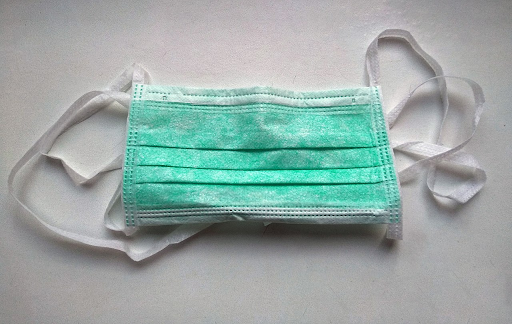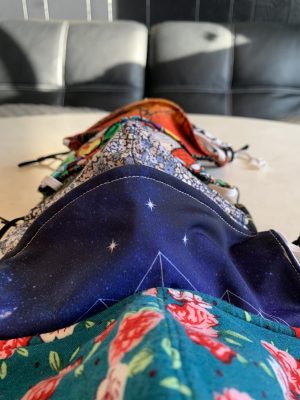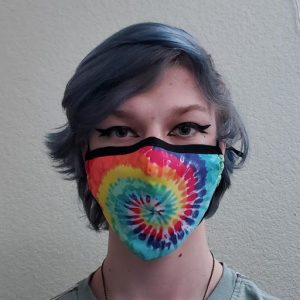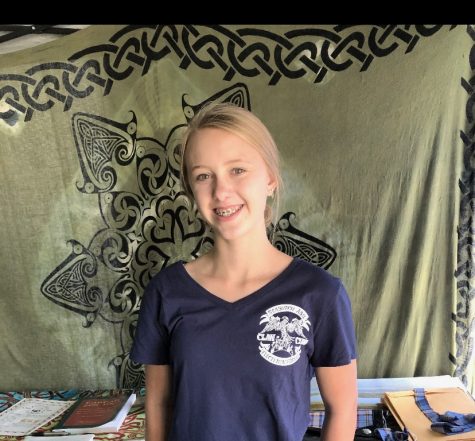Wearers Perceive Masks in Many Different Ways

NurseTogether, Wikimedia Commons
Masks can be a source of comfort and security, or can bring about anxious emotion; however the mandates to wear them should be followed.
February 17, 2021
Masks are subjective; wearing them can be a different experience for each person. Some use them to hide from societal expectations, while others resent their existence.
Whatever the perspective is, masks are mandatory in the city of Littleton. Hundreds don these life-saving devices daily–so what are the ways people view masks?
“It’s definitely strange wearing them around,” Dakota junior Mackenzie White said. “At first I didn’t like them very much.”
For some, masks induce anxiety or overwhelming emotions. The facial coverings are prisons for these people.
With potential claustrophobia, fogged glasses, and sore faces, masks aren’t necessarily enjoyable.
Walking among fellow citizens can be just as overwhelming with covered faces, enhanced by menacing imaginations that construct horror stories in public spaces.
For those that don’t mind wearing masks, the anxiety can appear with the clear reminder of the presence of COVID-19, or from those who aren’t wearing masks when they need to be.
Wearing masks is beneficial in many ways, from maintaining health to increasing bodily positivity.
In an experimental adaptation of the Cambridge Face Memory Test, there was a 15% decrease in facial recognition for people masked compared to non-masked.
With this lesser recognition, people are more likely to care less about their own appearance when going out in public.
“I care more about my appearance without my mask because… half of our faces are covered,” White said. “The way that we see others changes when we aren’t wearing masks.”
If people see each other differently, or hardly even know who they’re looking at when masks are thrown into the equation, why should it matter what one looks like?
Many don’t even care what their mask does portray.
“I don’t take the time to decide what pattern I want,” Dakota sophomore Jasmine Fesh said.
On the contrary, masks can also offer hundreds of designs and styles that provide a way of expression like never before.

Many love taking the time to support businesses and wear a representation of themselves. The choice and ability to look casual creates a new sense of security.
“Personally, I find them comfortable to have on,” Dakota sophomore Phil Spencer said.
Masks also influence the way people see the world, rather than just their own image.
“It changes my attitude on the people I’m friends with,” Fesh said. “I don’t want to be friends with people who don’t take a pandemic seriously.”
People can analyze the actions of those they surround themselves with, revealing conflicting opinions or entirely new beliefs about what kind of person someone is.
“I always wear one,” Fesh said. “A surprising amount of people don’t believe in science.”
At the end of the day, the experience of wearing a mask is subjective, ranging from a casual relationship with the face covering to a whole-hearted resentment.
No matter what someone feels, however, it’s important to follow city mandates and world studies that point to wearing masks.
By covering mouths, masks prevent the spread of Covid-19 by minimizing the transmission of respiratory droplets, both stopping wearers from inhaling them, and others from breathing them in.
“I think it’s the right thing to do in a pandemic,” Spencer said.
Experiences and relationships with masks are truly subjective, with a plethora of possibilities when it comes to handling them.
For whom does it make feel more casual about their appearance, alleviating stress? For whom does it overwhelm?
No one can tell such emotions in the people they pass… the masks cover it up.
All people can do is be open, follow city law, and find a way to don the life-saving devices until they make their exit from society.



